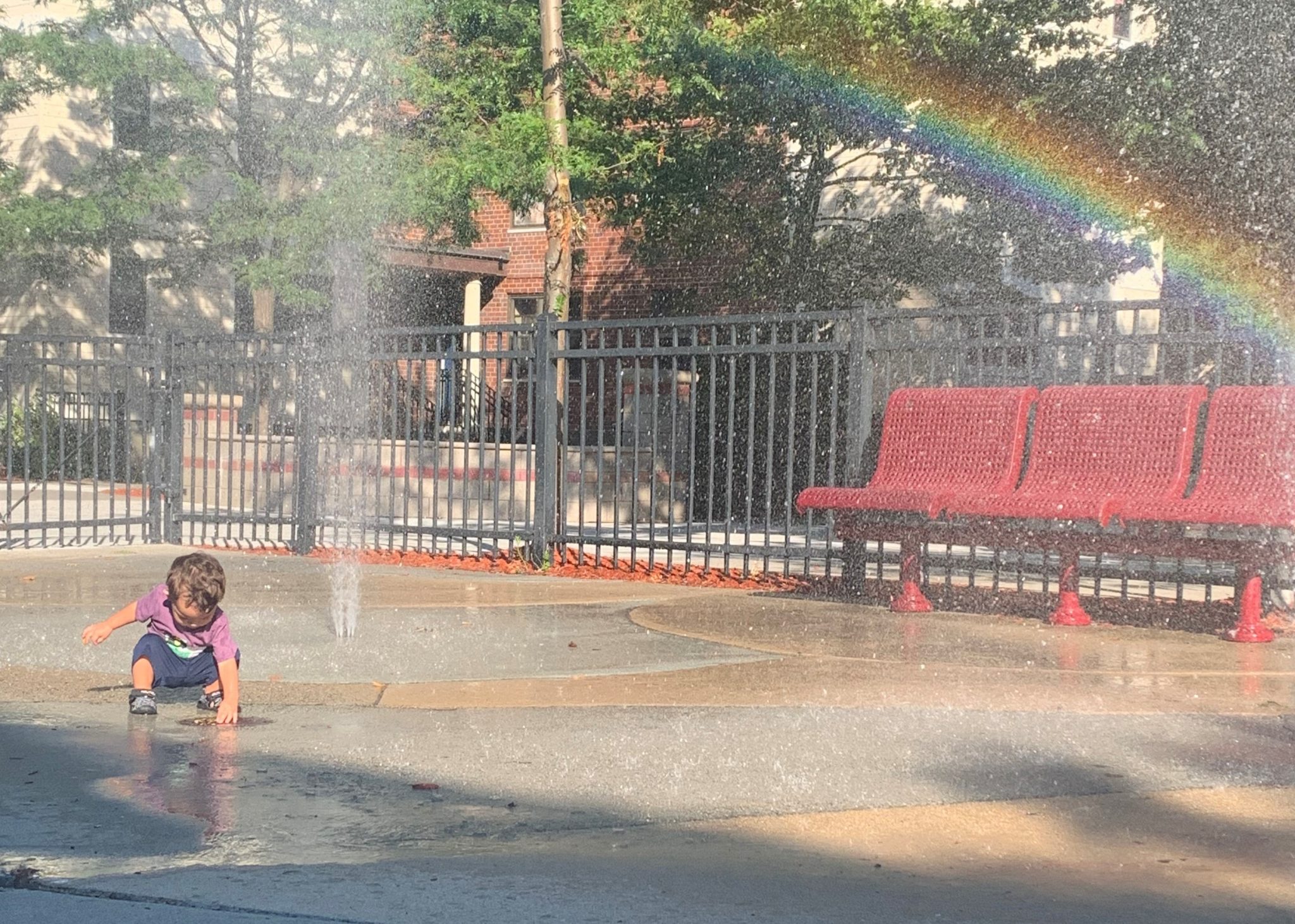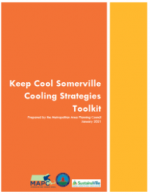
DLTA Spotlight: Keep Cool Somerville
A cooling strategies toolkit for increasingly hot summers
Written by Operations Specialist Rachel Marx
District Local Technical Assistance, or “DLTA” funds, are state grants distributed among the state’s 13 Regional Planning Agencies (RPAs)—including MAPC—to provide cities and towns with money and technical staff to work on projects related to regional collaboration, economic development, zoning, and protecting the environment.
Each month, MAPC will highlight a project made possible by DLTA funding.
The summer of 2020 was among the hottest on record. As climate change continues to cause more weather extremes, our neighborhoods can expect hotter summers with more frequent and severe heat waves. While the warmer weather seems far away, now is the time to prepare our communities. That is exactly what the MAPC and the City of Somerville have partnered to do, and what MAPC is hoping to help more communities achieve in the future.
Supported by DLTA funding, the MAPC Public Health Department and Community Engagement team partnered with the City of Somerville this past summer and fall to conduct research on ways to keep residents cool in increasingly hot summers. City staff sought to understand how residents and organizations perceived heat-related climate impacts, how they coped with rising heat, and what interest they had in heat-related interventions.
The project team conducted stakeholder interviews, facilitated focus groups, released a survey, and led a photovoice project with resident participants. Through the photovoice project, they asked residents to use photography and art to share their experiences with extreme heat and the actions they took to keep cool. A few examples of their submissions are below.
PhotoVoice: Images from Community Members
Responding to these engagement findings and using evidence-based and community-based strategies, MAPC and the City of Somerville created the Keep Cool Somerville: Cooling Strategies Toolkit.
Like most things, there is no one size fits all solution to heat-preparedness. The toolkit includes 25 strategies for the City and its community partners to employ, with a focus on supporting residents most vulnerable to the health impacts of rising temperatures. It includes interventions to promote cooling in people’s homes and community-serving buildings, enhance access to cooling in public spaces, and empower residents and community groups to mutually address each other’s cooling needs.
One of the proposed strategies the team is excited about is the use of partnerships with home visiting programs to expand the reach of energy programs. Home visitors can include health educators and home care workers, who provide a crucial link for new parents and medically vulnerable populations to health supporting resources. Home visitors could be equipped to educate families on heat health risks and prevention measures and can facilitate connections to utility bill assistance and weatherization services. Partnerships like this—between home visiting, weatherization, and other healthy housing programs—already exist in a few places, including Vermont, Washington and the Mid-West and have demonstrated significant health and quality of life benefits in these communities.
This strategy and others may actually be deployed this summer. In 2021, through the Accelerating Climate Resiliency Program, MAPC will support the City of Somerville in using this toolkit and the engagement findings to support small-scale, community pilot projects to address heat. The Keep Cool project team will continue to engage community organizations and priority populations to build their capacity to propose and implement.
Climate change increasingly threatens the health and wellbeing of our communities. Interventions to address the health effects of these climate impacts like extreme heat is an emerging area of research and practice. Efforts like Keep Cool Somerville contribute to a more resilient future for our region by helping us better understand and evaluate locally-relevant climate health risks and adaptations.
Want to support climate health preparedness in your community? Contact Jeanette Pantoja at [email protected].
Want to learn more about how you can support DLTA? Check out our DLTA one-pager or contact Leah Robins at [email protected].

